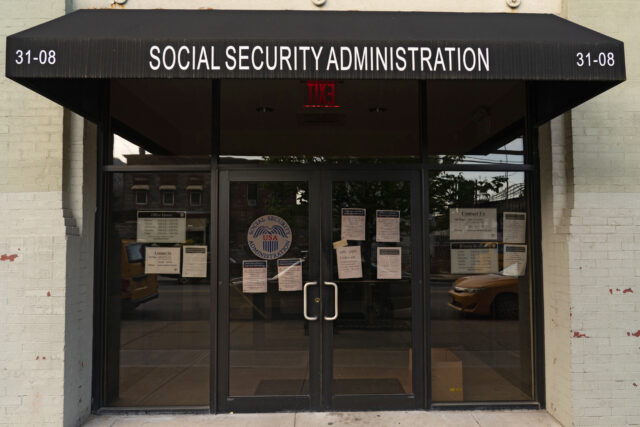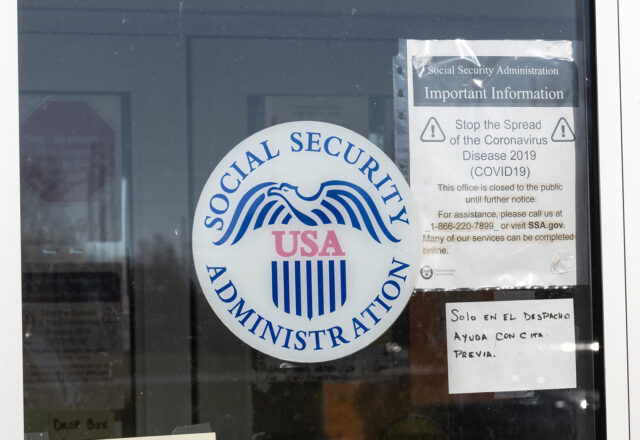
COVID Disrupted Schools’ Role as Funnel for Federal Aid
The Supplemental Security Income program supports more than 1 million disabled children nationwide. Poor and low-income families receive monthly cash payments of up to $943 to help with their care. In most states, automatic Medicaid eligibility for the child is part of the SSI package.
New research finds that the pandemic disrupted a natural channel for families to get information about this critical financial support: the schools.
All but two states – rural Montana and Wyoming – immediately shut down the schools in the spring of 2020 to control the spread of the deadly virus. Applications to federal Supplemental Security Income, or SSI, plunged after parents lost that connection to information about the program. In early 2020, applications submitted on behalf of children ages 5 to 13 with severe physical or mental disabilities fell by more than a third compared with a year earlier.
While the states simultaneously closed their public schools to control COVID’s spread, the timing of the reopenings varied markedly. Southern states like Alabama reopened their schools at the beginning of the 2020-2021 school year, while schools in Massachusetts and other northeastern states often continued with virtual or hybrid learning for most of that year. Yet, even within a state, decisions on re-opening often varied at the county and school district level.
The researchers were able to show a decline in SSI applications resulting from school closings by comparing SSI application rates between October 2020 and January 2021 in counties where more schools remained closed and counties where more had reopened.
Nationwide, applications dropped 19 percent more when the schools were closed. The largest declines were for elementary- and middle school-aged children.
The researchers also uncovered evidence of the way that schools influence SSI applications by looking at the role of school psychologists.
Not every school has someone on staff to help students with mental health and behavioral issues. But in the places that do, psychologists are often on the front lines identifying children with disabilities, informing their parents about the availability of SSI assistance, and sometimes documenting a child’s limitations to include with the SSI application. The Individuals with Disabilities Education Act also requires schools to evaluate all children suspected of having a disability, including a mental or learning disability.
Once the schools shut down, however, it became much more difficult for school psychologists to provide this vital service. Applications declined more in the districts that employed more psychologists and mostly remained closed during the pandemic, according to the researchers. Applications in counties that did not employ many school psychologists – and where those services were unavailable even when the schools were open – did not see any decline when they closed during the pandemic.
The results in this study are clear: schools “play an important role through which children and families learn about and apply for SSI,” the researchers said.
To read this study by Michael Levere, Jeffrey Hemmeter, and David Wittenburg, see “The Importance of Schools in Driving Children’s Applications for Disability Benefits.”
The research reported herein was derived in whole or in part from research activities performed pursuant to a grant from the U.S. Social Security Administration (SSA) funded as part of the Retirement and Disability Research Consortium. The opinions and conclusions expressed are solely those of the authors and do not represent the opinions or policy of SSA, any agency of the federal government, or Boston College. Neither the United States Government nor any agency thereof, nor any of their employees, make any warranty, express or implied, or assumes any legal liability or responsibility for the accuracy, completeness, or usefulness of the contents of this report. Reference herein to any specific commercial product, process or service by trade name, trademark, manufacturer, or otherwise does not necessarily constitute or imply endorsement, recommendation or favoring by the United States Government or any agency thereof.






